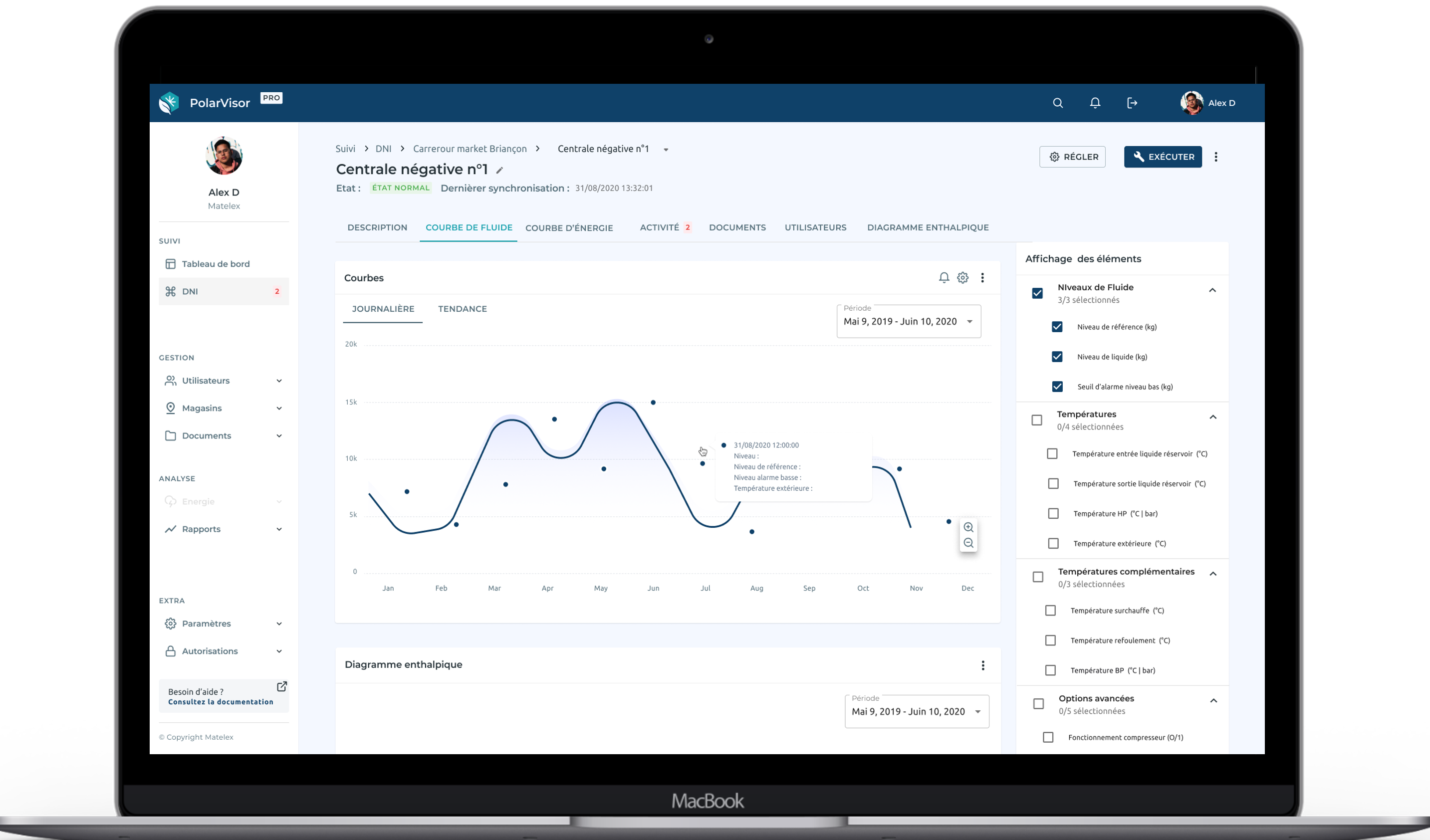Events • 10.10.2024
Extreme heat : 8 tips for managing refrigeration systems

The summer period puts refrigeration plants to the test. Demand for refrigeration is high, and the availability of technicians is limited. In this article, you’ll find 8 tips for managing refrigeration systems during heatwaves.
1 – Enhanced surveillance
- Real-time monitoring: use monitoring systems to track plant performance in real time and quickly detect any anomalies.
- Leak detection using indirect measurement methods: take advantage of this continuous monitoring to be promptly informed in the event of a refrigerant leak. Indirect measurement methods such as DNI or PolarBox continuously oversee your systems and alert you in case of a refrigerant leak.
- Centralised, remote monitoring: connect your monitoring equipment to the PolarVisor platform. You’ll have remote visibility of all your installations. When you connect, the dashboard lists the installations in alarm requiring priority action. Consult the operating data and level curves before intervening on site to optimise your planning.
2 – Preventive maintenance
- Condenser cleaning: clean the condensers more frequently to avoid the build-up of dust and debris that can reduce heat exchange efficiency.
- Check the fans: make sure the fans are working properly and replace any faulty or ageing units to ensure good air circulation.
3 – Optimising refrigeration systems
- Temperature settings: adjust the temperature settings to maintain a stable temperature without overloading the system.
- Use timers and intelligent controls: implement timers and intelligent control systems to optimise refrigeration cycles and reduce the load during peak hours.
4 – Workload management
- Load balancing: distribute the products to be refrigerated evenly to avoid overloading a single refrigeration unit.
- Reduce the heat load: limit the opening of cold rooms (during deliveries, for example) to reduce the intake of hot air.
5 – Contingency plan
- Prepare a contingency plan: have a contingency plan in place to deal with a possible breakdown, including back-up solutions such as generators or mobile refrigeration units.
- Procurement and supplier relations: supply spare parts and make sure you have all the equipment you need to respond to emergencies.
6 – Use of insulating materials
- Improved insulation: improve the insulation of fridges and freezers to reduce external heat gain.
- Use of air curtains: Install air curtains or strip doors to minimise the intake of warm air when opening frequently (cold rooms).
7 – Staff training
- Sharing good practice: train staff in good practice during heatwaves, particularly in limiting door openings and reporting any anomalies quickly.
- Summary sheets and contact details: make practical sheets available and identify a key contact person in the event of a problem
8 – Energy optimisation :
- Monitor energy consumption: leak detection systems (indirect methods) use a simple add-on module to monitor consumption in real time and notify you to any energy drift.
- Adequate refrigerant charge: under-charged refrigeration systems consume more energy. Maintain an adequate charge and take action as soon as a leak occurs.
By applying these tips you will minimise the risk of breakdowns while ensuring optimum performance.
Do you also need 24/7 remote supervision?
Contact us :
contact@matelex.dehon.com
01 43 98 75 15




